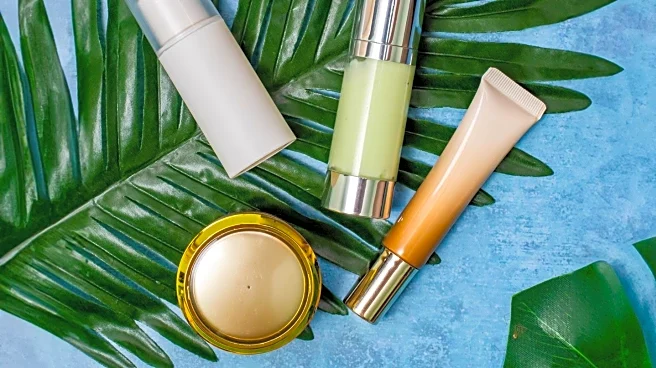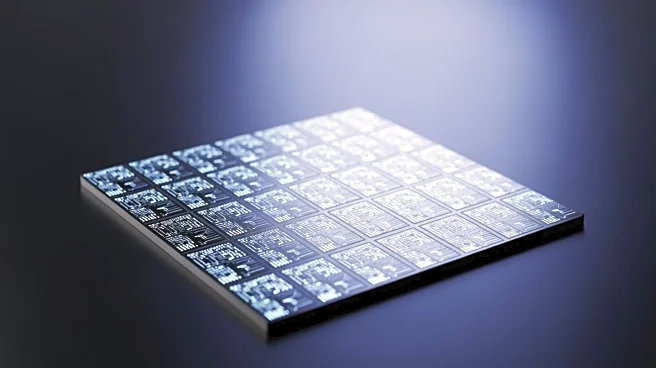What is the story about?
What's Happening?
Retinol, a popular anti-aging skincare ingredient, can cause irritation for individuals with sensitive skin. Consultant dermatologist Dr. Anjali Mahto suggests alternatives like bakuchiol, niacinamide, azelaic acid, peptides, and vitamin C, which offer similar benefits without the adverse effects. Bakuchiol, derived from the babchi plant, is highlighted for its ability to improve skin texture and reduce fine lines, making it suitable for sensitive skin and during pregnancy. Other alternatives focus on improving skin tone, reducing blemishes, and supporting collagen production.
Why It's Important?
The shift towards retinol alternatives underscores the growing demand for skincare products that cater to diverse skin types and conditions. As consumers become more informed about ingredient safety and efficacy, the skincare industry is likely to see increased innovation in developing products that balance effectiveness with gentleness. This trend may lead to broader acceptance of plant-based and scientifically-backed ingredients, influencing product formulations and marketing strategies. Dermatologists play a crucial role in guiding consumers towards safe and effective skincare choices.
What's Next?
Skincare brands may continue to expand their product lines to include more retinol alternatives, driven by consumer demand for gentle yet effective solutions. Dermatologists and researchers might conduct further studies to explore the long-term benefits and potential side effects of these alternatives. As awareness grows, consumers are encouraged to consult skincare professionals to tailor their routines based on individual needs and skin conditions.














